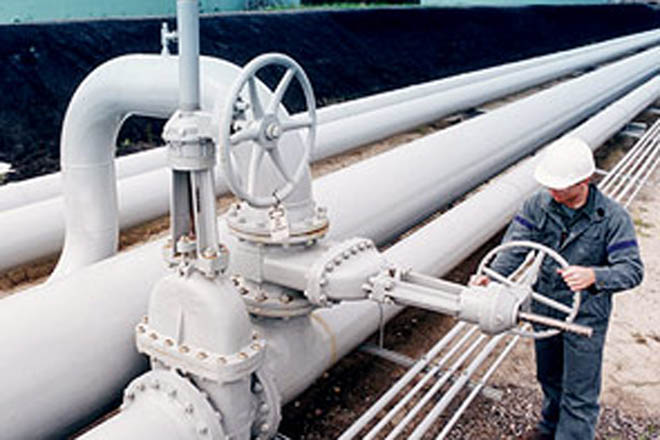Baku, Azerbaijan, November 17 / Trend /
Azer Ahmadbayli, Trend Agency Analytical Center Expert
The last remaining project, of three ones considered a potential route of gas export from Azerbaijani field Shah Deniz, which has not yet been "PR-ed" in Baku, is the Trans Adriatic Pipeline (TAP). At last, following the visit of the President of Austria who voiced his backing to project Nabucco, and the arrival of Greek Energy Minister who is the supporter of project Interconnector Turkey-Greece-Italy (ITGI), Swiss Energy Minister Doris Loytard arrived in Baku to meet senior governmental officials of Azerbaijan. In a statement for press released several days prior to Mrs. Loytard's visit, the Swiss Embassy said the key objective of the visit was to back TAP, one of which shareholders is Switzerland's EGL.
One fact draws attention at once. As reported recently, the throughput capacity of TAP can be increased up to 20 billion cubic meters per annum. "Though the TAP initial designed throughput capacity is 10 billion cubic meters a year, several options of construction of the pipeline make it possible to double it due to insignificant investments. A large-diameter pipe can be used for a submarine section to cross the Adriatic Sea at a depth of not more than 810 meters. Under such choice of pipeline dimensions, any further increase of throughput capacity requires just an additional compression," the report reads.
The possibility of doubling the pipeline's capacity with insignificant investments is a weighty argument favoring this project, especially with the consideration of statement of US Secretary of State's Special Envoy Richard Morningstar. On his visit to Baku, Morningstar said, unexpectedly to many, that it is expedient to start implementing the Southern Gas Corridor Project with a pipeline with a smaller throughput capacity, which is expected to increase subsequently in future. Certainly, one of the most decisive factors, if not of utmost importance, in choosing a route will be gas transit tariff. But possibly, the Shah Deniz Consortium partners are forced to take the financial crisis in the Eurozone area into account not to a lesser extent. Perhaps, exactly the sad financial situation that forces the EU to cut investments for large projects, at a time when there is no EU specific agreement with Azerbaijan and Turkmenistan, makes Nabucco, with its value, a load too heavy to lift. At least, Morningstar has now spoken on this thought diplomatically through shifting accent toward cheaper projects.
The EU, in the face of its leaders, Germany and France tries to make every effort to prevent collapse of the Eurozone, with Greek's potential leaving it considered first step toward collapse. In this connection, there is one more argument favoring TAP. In August, the TAP Consortium officially announced an increase of the pipeline's extent by 300 kilometers (the Greek section) up to a total of 800 kilometers. TAP Consortium officials said this decision confirms and will strengthen further TAP commitments on Greece, and will make it possible to create new jobs in Greece and supply the country with investments worth more than 1 billion euros in the period of sad financial crisis in the country.
Another fact that should be kept in mind is that Norway's Statoil is one of the shareholders of TAP (42.5 percent interest) and at the same time holds 25 percent interest in the Shah Deniz Consortium. Thus, it is to assume that the TAP has one "pro" vote amongst the Shah Deniz shareholders, which would have been quite natural.
Murad Heydarov, Adviser to SOCAR Head, stated yesterday that choice of a route of Azerbaijani gas export to Europe is quite essential from the point of exporting gas from not only Shah Deniz but also such promising deposits as Nakhchivan and Babek, deepwater gas from the fields Azeri-Chirag-Gunashli, etc. Undoubtedly, this increases the chances of the TAP having the potential of a further considerable increase of its throughput capacity.
But do not also forget the fourth, BP-offered transportation route, which assumes gas export via the territory of Bulgaria to Southeastern Europe, a region that needs gas supply routes diversified, probably, most of all.
The TAP is one of projects of the Southern Gas Corridor. The pipeline will take its start in Greece, pass the territory of Albania and the Adriatic Sea and onward to Italy. The project is preliminarily valued at 1.5 billion euros. In Italy and Greece, the pipeline will be linked to the existing gas transportation infrastructure. The pipeline's total extent is around 800 kilometers.
TAP shareholders are Switzerland's EGL (42.5 percent), Norway's Statoil (42.5 percent), and Germany's E. ON Ruhrgas (15 percent).






